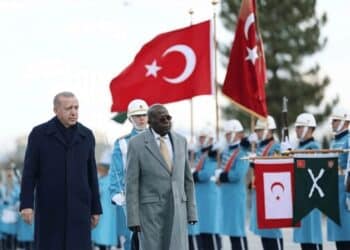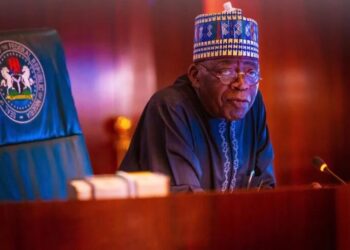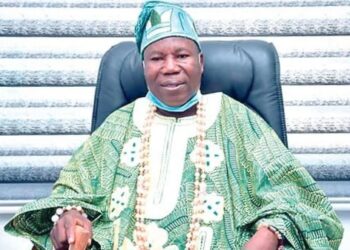Nobody can be kinder than the narcissist while you react to life in his own terms – Elizabeth Bowen
We have reached a stage where Nigerians should be really interested in the character and predilection of their leadership. In mature climes, political suitors are dissected before being elected. Time has come to render out of vogue the unhealthy practice of pre-election endorsement before the dissection of the character, mental status and psycho-composition of prospective leadership. A school of thought canvassing for the conduct of a psychiatrist examination—you may call it an evaluation—on whoever presents himself to lead the country implies that such must have been certified as medically, mentally and emotionally fit to rule by competent medical experts before being ushered into the leadership seat in Nigeria. The call appears to lack seriousness. However, with the current political landscape, it is unarguable that many in leadership may not have scaled through a personality evaluation test if it had been administered. It is saddening that many psychopaths have thrown themselves on us to rule while their mental state of health is questionable. The responsibility and demands of public offices in a complex ecosystem such as ours are too heavy to be entrusted to misfits who gladiate in managing our commonwealth like a personal estate and making choices that are inimical to the collective interests of the larger society. It is a costly and sometimes irreversible venture laden with far-reaching consequences. The delicate task of governing a downtrodden people and securing the well-being of an already abused and battered nation cannot be assigned to a leadership that is not mentally stable or psychologically balanced to administer without corrosive impact on the morale, morals and developmental policy of the nation.
We have repeatedly done the endorsement, election, or selection without proper medical clearance to show that these leaders are competently ready and prepared for the assignment they strongly clamour for.
In the past few months, I have devoted ample time to ponder on this suggestion of incorporating into our electoral laws a mental health examination of our leaders to inject sanity into the processes of electing our leaders. Our experience in the nearly three decades of democratic governance has shown that the emergence of the bulk of our leaders is not just happenstance but a product of a systemic malaise and a compromised electorate fostered by the general populace, who would later lament their misfortune of being bestowed bad leaders. Rather than acknowledging their collective failure to scrutinise the character of the supposed leaders and conduct a thorough analytical study of the situation, which resulted in a predominantly deficient crop of leadership, Nigerians have persistently blamed their luck. The continuous reinforcement of this deficiency leaves no one in doubt that our lamentation will continue the world without end unless a pragmatic detour occurs. Therefore, it’s time to evaluate and choose our leaders who can critically alter the narrative. And the time is now! What makes it more compelling is that nearly all our leaders feature narcissist tendencies. Unfortunately, we have assisted in sustaining the misnomers by hero-worshipping them and thus regaling them with gods.
Our complacency also makes us weaklings who cannot resist these leaders’ attempts to deny us our rights. Our lukewarmness, without any resistance to the excruciating pains inflicted on citizens over the years, makes these narcissistic leaders feel they’ve conquered.
What we have in place is a semblance of doctrinal governance meant to brainwash people and set them on for further enslavement through institutionalised narcissism by self-adulation and underserved admiration of unethical practices.
Now, with this narration, let’s dissect the word narcissism. Going by the dictionary definition, narcissism is described as a “mental health condition in which people have an unreasonably high sense of their importance.” A narcissist needs and seeks too much attention and wants people to admire him. A narcissist is a person who practices narcissistic actions. This suggests that leadership is selfish and self-centred. The mantra of service they proclaim is aimed at beclouding our senses of reasoning and preventing us from knowing or understanding the political games played on our collective intelligence. These traits are the hallmark of narcissism as a grandiose sense of self-importance.
The claims exhibited by our leaders point to the enslavement of the entire citizenry. With the behaviours they put up, these leadership beliefs in exaggerated achievements, demanding admiration and leaving others feeling invalidated and insignificant are symbolic exhibitions of narcissistic tendencies. The populace’s outright deceit, which involves exaggerating their abilities in various areas and making it difficult for others to trust their honesty, raises questions about the authenticity of their leadership. Overstating their qualifications and high sense of self-importance often leads to the narcissist minimising the achievements of others and damaging their self-esteem. Although the current situation in the country has generated questions that require answers from these leaders in their usual Maradona style, they would respond cunningly to fit into the classification of narcissistic evaluation—a little more sacrifice and push is required from the masses to get us to the eldorado stage. Naturally, that douses the tension.
Olusegun Obasanjo, for example, is renowned for his unwavering display of superiority, uncompromising views on various issues, and concurrent denigration of others. He often displayed these when he spoke. While his government implemented his abrasive policies and actions, Buhari’s megalomaniac behaviour, ethnicity games, and the audacity of his aides left no doubt that he was fully engaged and not absent-minded.
As we all know, the dark side of narcissism is the unwavering self-confidence that is as fragile as an eggshell. Narcissists have traits of not going back and forth on a continuum of self-examination or re-evaluation as the rest of us do. Instead, they relentlessly pursue their goals until an external force shatters their shield of self-importance. Then, they fall and crash into pieces. Under that fragile, brittle cover lies a hidden pool of insecurity and pain. Deep down, the narcissist’s deepest and most powerful fear is that he is nothing but a void, and when left unchallenged, a narcissist becomes more and more brutal in the enterprise, and nobody can stand his way without being crushed.
With his brash, self-centred ways, the narcissist would hurt the people around him physically and emotionally, and often. His deepest fear in life is of being exposed as nothing. This reinforces the tenacity to protect his own fragile shell above all else, even if it sometimes emotionally harms the people he loves the most. Their need to be special or their version of uniqueness is so great that the need to feed it with accolades and acknowledgement becomes requisite while everything is secondary.
With the trait’s spreadsheet, the narcissist becomes dangerous to tame. Over the years, we have assisted this set of people in nurturing the dangerous stem of the narcissist to become worse as we feed his ego, protect the inflated sense of self, and thus make him desperate in his drive to violate others’ boundaries.
A narcissist lacks empathy for others. This makes him incapable of seeing when he hurts others. His belief that he is so special can make it easy for him to rationalise his actions.
Further analytical study revealed that most narcissists do not pose any real danger to people around them (except perhaps emotionally). The risk comes from the ingredients a narcissist feeds his uniqueness on, such as unwavering admiration from others, which leaves little room for genuine connections or meaningful relationships. Genuine connections require honesty, communication, and negotiations when conflicts arise in the relationship.
Narcissists often view criticism as a personal attack, further damaging those around them and forcing them to feel that they are allowing the perceived loyalists to erase their claim of superiority, hence the incessant need for validation. That in itself can lead to a toxic dynamic, where individuals feel obligated to cater to the narcissist’s ego at their own mental health expense. This means it gets emotionally exhausting to try to maintain a healthy relationship.
Understanding these narcissist traits is essential for citizens to recognise and navigate interactions with individuals who exhibit these characteristics and stop them by any necessary means to get into the leadership seat. These deficiencies throw up vagaries of behaviours and attitudes that profoundly affect development and social dynamics. From an overbearing sense of self-importance to a lack of empathy, these traits often manifest in various ways, impacting both the narcissist and those around them.
By familiarising ourselves with these traits, we can better understand the motivations and behaviours of narcissists, thereby empowering ourselves to establish healthier boundaries and cultivate more fulfilling relationships. Some common traits associated with narcissism: shedding light on this complex and often challenging subject indicates exhausting relationships, leaving partners, friends, and family members feeling drained and unappreciated.
Narcissists indulge in fantasies of limitless success, power, and admiration. These fantasies, while seemingly harmless, often manifest in manipulative behaviours aimed at fulfilling their delusion of grandeur. The inability to distinguish between fantasy and reality can lead to a distorted perception of the issues, further exacerbating their tendencies. Projecting their delusional fantasies often means they end up dragging those who are close to them into their schemes as well. This can lead to tension and conflict between the narcissist and others, as they truly don’t see the world the way the narcissist does.
The narcissist’s belief in their own superiority breeds a sense of exclusivity, alienating them from those they deem unworthy of their attention. This exclusivity not only isolates the narcissist but leaves others feeling rejected and insignificant as well. They likely force their way into social groups or relationships with others they see as “special,” leading to discomfort from others due to a lack of respect for boundaries. The constant pursuit of status and validation perpetuates a cycle of insecurity and discontent, further deteriorating mental well-being.
Another key trait of narcissists is how they often harbour feelings of envy towards others. Perceiving any success or recognition by others is seen as a threat to their own sense of superiority. This envy leads to toxic competitiveness and resentment towards those perceived as rivals. Similarly, narcissists may inadvertently project their own envy onto others, further fuelling mistrust and discord within relationships. If they see others as envious of them, the resultant effect is to get defensive and push people away.
Arrogance and haughtiness are common features of a narcissist. These traits stem from their bloated ego of self-importance and alienation of those around them, making individuals feel belittled and undermined. The constant need to assert dominance and superiority creates an environment of tension, unhealthy competition, and hostility, further engendering deteriorating mental well-being.
In conclusion, as we prepare for the 2027 election year, we should continue advocating for comprehensive electoral reforms. These reforms should include a paradigm shift that prohibits anyone without a clear mental health record from contesting future elections in Nigeria. Whoever is in the leadership seat must obtain a psychiatrist certificate attesting to his sound mind and validating his morals and emotional and hormonal balance.
*Lanre Ogundipe, Public Affairs Analyst: Former President Nigeria and African Union of Journalists writes from Abuja.









